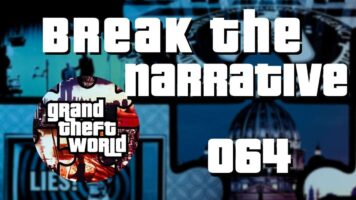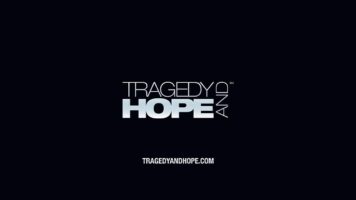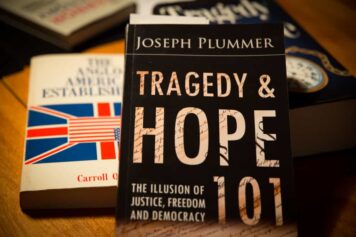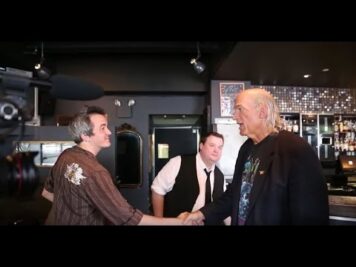Researching the Infamous Quotations Attributed to Zbigniew Brzezinski
Author: Richard Grove•May 1, 2013
Tags:ages, between, bin, brzezinski, collectivism, communism, control, cybernetics, era, laden, mujahideen, osama, social, soviet, technetronic, two, union, Zbigniew
Check Your Sources, Gentlemen!
The Problematic Brzezinski “Money Quotes”…
By Will Banyan
Copyright © 20 December 2008
In the rush to condemn President-elect Barack H. Obama as yet another tool of the New World Order conspirators, many analysts have been having great sport exploring the views of one of Obama’s higher profile advisers, Trilateral Commission co-founder and former National Security Adviser, Zbigniew Brzezinski. As evidence of Brzezinski’s inclinations towards totalitarian world government many of these earnest analysts have presented what they are claim are quotes from Brzezinski’s most notorious work, Between Two Ages: America’s Role in the Technetronic Era (1970), the book which launched the trilateral concept and ultimately the Trilateral Commission.
The problem is that a number of these quotes do not appear to have come from Brzezinski’s book; at least two are fabrications, while another is a misleading compilation of quotes, stripped of their actual context.
Our first example is in a recent article by the current President of the John Birch Society, John F. McManus, “Behind the Obama Agenda”, which appeared in The New American (Nov. 26, 2008). Describing Brzezinski as “arguably President-elect Obama’s most important adviser”, McManus informs us about Brzezinski’s pedigree:
The inspiration for [David] Rockefeller’s Trilateral Commission had been Brzezinski’s 1970 book, Between Two Ages, in which the Polish immigrant argued that “national sovereignty is no longer a viable concept.”
I have a copy of Between Two Ages (Viking Press, 1970) and have searched in vain for these incriminating words supposedly written by Brzezinski – “national sovereignty is no longer a viable concept” – but alas, I cannot find it. Brezinski does make a number of statements about the decline of the nation-state: “the nation-state is gradually yielding its sovereignty” (p.56); “the fiction of sovereignty” (p.274); and “developing limitations on national sovereignty” (p.296); but the words “national sovereignty is no longer a viable concept” do not appear. It is possible that it may be in a later edition of Between Two Ages or even some other book or article by Brzezinski, but the ongoing failure of McManus, along with countless other authors, to accurately cite the page number where this statement supposedly appears in Between Two Ages calls into question the authenticity of this alleged quote.
Mr McManus may take some comfort that he is not alone in suggesting Between Two Ages is the source of this alleged statement: Jim Marrs makes a similar claim in Rule By Secrecy (1997, p.23) as does David Icke in And The Truth Will Set You Free (2004, p.158) and the David Icke Guide to the Global Conspiracy (2007, p.201), and James Perloff in The Shadows of Power (1988, p.154); along with hundreds of other trusting pundits on the web. But the fact that so many use this quote, when its true origins appear to be unknown, does much to reinforce the worst stereotypes of conspiracy theorists as unquestioning recyclers of bogus “factoids.”
Our next few examples can be found in David Icke’s recent 7000-word feature on Obama – “Barack Obama…The Naked Emperor” – where he describes Brzezinski as Obama’s “mentor, svengali and main controller” and not to mention “co-founder, with David Rockefeller, of the Illuminati’s Trilateral Commission.” As evidence of Brzezinski’s malfeasance Icke gives us three quotes, two of which he sources to Between Two Ages, the other has an unknown source.
The first of the Brzezinski quotes is introduced by Icke with the casual comment: “Here is one Brzezinski quote you might recognise and it was made before Obama ran for president.” Icke offers to this quote as evidence that “’Obama’s’ policies come straight from Brzezinski’s books”, but he does not tell us which Brzezinski book this this statement comes from:
Needed social reassessment . . . can be encouraged by deliberate civic education that stresses the notion of service to a higher cause than oneself. As some have occasionally urged, a major step in that direction would be the adoption of an obligatory period of national service for every young adult, perhaps involving a variety of congressionally approved domestic or foreign good works.
It is a fascinating quote, but hardly one that we “might recognise”, given a Google search on the quote brings up about forty hits, almost all of them referencing Icke’s “Naked Emperor” article. The odd one out is the article “Beware The False Messiah”, by “Steve” at the Our Future World blog, dated November 21, 2008. Steve includes the quote in his apparently “perceptive study” of Brzezinski’s two recent books The Choice (2004) and Second Chance (2007). Unfortunately, Steve doesn’t bother to indicate which book the specific quotes come from, let alone the page number, so we don’t know its true source or if it is accurate; and judging by his coy introduction, nor does David Icke.
The next two quotes Icke does explicitly source to Between Two Ages. The first of these Icke suggests is evidence of the “global society that [Brzezinski] and the Illuminati seek to impose”:
The technetronic era involves the gradual appearance of a more controlled society. Such a society would be dominated by an elite, unrestrained by traditional values. Soon it will be possible to assert almost continuous surveillance over every citizen and maintain up-to-date complete files containing even the most personal information about the citizen. These files will be subject to instantaneous retrieval by the authorities.
Unfortunately for Icke this entire quote does not come directly from Between Two Ages alone but is in fact a combination of two sources. The first of these is some selective quotes from the paragraph below – I have put the relevant phrases in bold – found in Between Two Ages. Here is what Brzezinski actually wrote:
Another threat, less overt but no less basic, confronts liberal democracy. More directly linked to the impact of technology, it involves the gradual appearance of a more controlled and directed society. Such a society would be dominated by an elite whose claim to political power would rest on allegedly superior scientific knowhow. Unhindered by the restraints of traditional liberal values, this elite would not hesitate to achieve its political ends by using the latest modern techniques for influencing public behavior and keeping society under close surveillance and control (Between Two Ages, pp.252-253).
The second source, less well known, is a Brezinski article “America in the Technetronic Age”, that appeared in the now defunct journal Encounter (January 1968). What Brzezinski wrote, over forty years ago, (with the relevant sections again in bold), is this:
At the same time, the capacity to assert social and political control over the individual will vastly increase. As I have already noted, it will soon be possible to assert almost continuous surveillance over every citizen and to maintain up-to-date, complete files, containing even most personal information about the health or personal behaviour of the citizen, in addition to more customary data. These files will be subject to instantaneous retrieval by the authorities (p.21).
The paragraph used by Icke (and hundreds of others on the web), and claimed by him to be from Between Two Ages, is a clear fabrication. The original words may have been Brzezinski’s, but they have been lifted from two separate sources and combined into a paragraph that he did not write and then deceitfully presented as though the entire statement was a direct quote from Between Two Ages, when it is nothing of the sort. Of course, had Icke actually consulted Between Two Ages – it appears in the bibliography to his latest book, The David Icke Guide to the Global Conspiracy, so presumably he has access to a copy – instead of trusting everything that he found on the web, he would have realised that this alleged quote was a fabrication.
Furthermore, from reading Between Two Ages and Brzezinski’s other writings, he would have also known that Brzezinski was not giving us an “Illuminati” recommendation or plan of action, but describing a possible outcome of this emerging “technetronic society.” Specifically, Brzezinski was observing: (a) how some governments might react to the social turmoil that could be caused by rapid technological change; and (b) how these new technologies might facilitate an authoritarian response. But more importantly, Icke would have known that Brzezinski did not believe this “technocratic dictatorship” was inevitable (Encounter, p.21). As Brzezinski had made clear in his Encounter article:
Thus, in the political sphere, the increased flow of information and more efficient techniques of co-ordination need not necessarily prompt greater concentration of power within some ominous control agency located at the governmental apex. Paradoxically, these developments also make possible greater devolution of authority and responsibility to the lower levels of government and society (p.21).
In Between Two Ages, Brzezinski was explicit in identifying a “more controlled and directed society” as a “threat” to “liberal democracy” (p.252). Moreover, Brzezinski considered such an outcome a “pessimistic” response to the changes facing America and held out the hope for “American redemption” (p.254). His solution was through “participatory pluralism” rather than “[m]ore centralized direction by the state”; this “new pattern” would involve “blurring distinctions between public and private bodies and encouraging more cross-participation in both by their employees and members” (p.261). In fact, Brzezinski seemed to believe the “long-range effect” of the “transition and its turmoils” he was documenting would be to “deepen and widen the scope of the democratic process in America” (p.265).
Icke’s second Brzezinski quote is actually drawn from Between Two Ages, although it is not the single paragraph he presents, but is in fact a series of sentences culled from various parts of the book by persons unknown and strung together as though they came from the same page. I have added the relevant page numbers from Between Two Ages for the benefit of Mr Icke and other interested readers:
Today we are again witnessing the emergence of transnational elites … [Whose] ties cut across national boundaries … It is likely that before long the social elites of most of the more advanced countries will be highly internationalist or globalist in spirit and outlook …(p.59) The nation-state is gradually yielding its sovereignty …(p.56) [F]urther progress will require greater American sacrifices. More intensive efforts to shape a new world monetary structure will have to be undertaken, with some consequent risk to the present relatively favorable American position (p.300).
In his latest book, The David Icke Guide to the Global Conspiracy (2007), Icke has a whinge about the refusal of academia to consider whether a conspiracy theory is “supportable by the evidence” in preference for theories about the psyche of people who believe in conspiracies (p.375). It is therefore somewhat ironic that Icke should go out of his way to reinforce these apparently unacceptable academic prejudices by backing his theories with such slipshod “evidence.”
There is much to say about the scope, intent and impact of Brzezinski’s advice and influence over Obama, but not with fake quotes. The lesson is simple: to avoid both embarrassment and misleading readers, check your sources, gentlemen!











